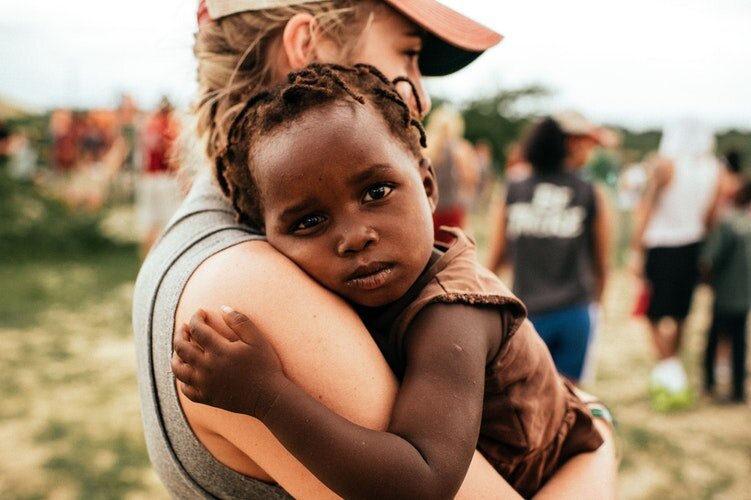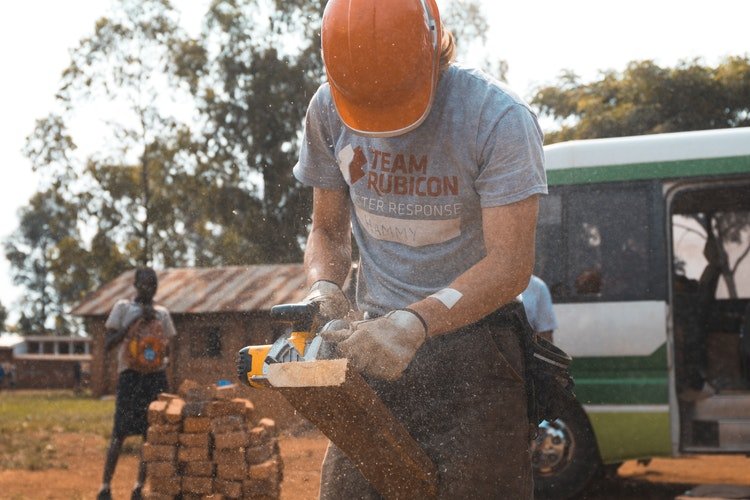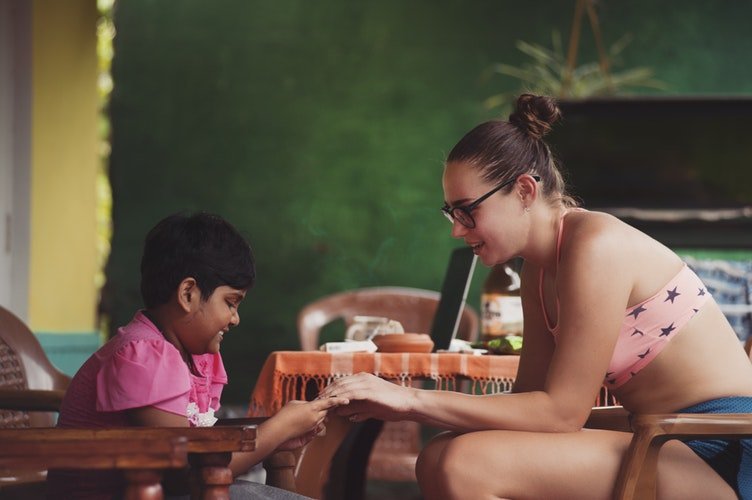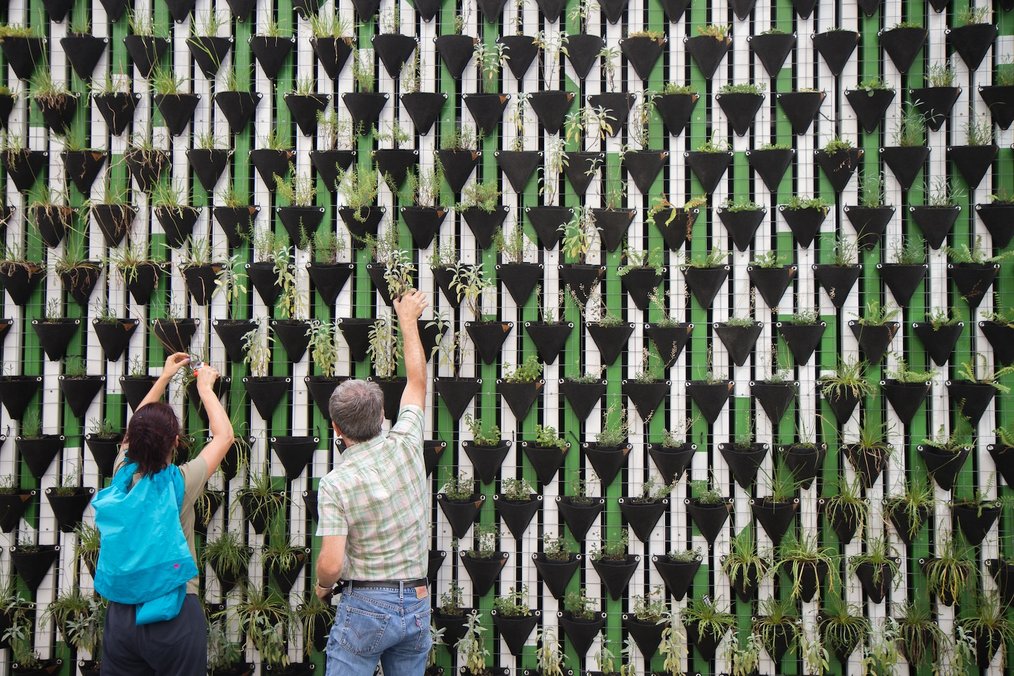The 5 Types of Volunteer Programs & How to Pick the Right One

You’ve considered your motivations for volunteering abroad and looked at possible alternatives: now it’s time to learn more about the different types of volunteer organizations available to you.
Volunteering placements, like everything in life, come in all shapes and sizes. It can be overwhelming to get a sense of their individual merits of each and, most importantly, which style is best suited to you. In general, we've found that there are five different types of volunteer programs -- and programs can be more than one type (for example, you can participate in a long-term conservation volunteer program).
Depending on your motivations to volunteer abroad, learning more about each of these categories can help you narrow down your program choices. Each type of volunteer program has its own advantages and disadvantages, so before starting your research, consider making a list of what these are for you personally.
With that in mind, let's dive in. This guide to finding your volunteering perfect fit is designed to give you all the information you’re looking for. You'll also learn the questions you should ask to refine your search and find the perfect volunteer program for you and your travel goals.
Type #1 - Short-Term Volunteer Programs
In a short-term volunteer program, volunteers provide service to a community on a short-term basis and/or focus on the cultural learning experience. These programs can be for-profit or not-for-profit. These days, short-term/intercultural placements make up the vast majority of volunteer abroad programs.
Quick facts about short-term volunteer programs:
- Offer short-term volunteer positions (from one week to three months).
- Generally do not require volunteers to have specific educational or professional qualifications.
- Are the most common types of overseas volunteering programs available.
A great advantage of short-term volunteer placements in the chance to experience a country and work with local people in a short amount of time. However, a major disadvantage is that as a volunteer you may be ‘gap filling’ if there is no long-term plan, and sometimes the impact of your placement is questionable (so make sure to read up on how to supercharge your impact on a short-term volunteering placement).
Type #2 - Long-Term Volunteer Programs
The focus of most long-term volunteer placements work is on empowering local people. These programs often involve some kind of skills transfer and may require volunteers to have specific educational or professional qualifications. These can often take the form of fee-paying volunteering placements, but also free volunteering projects that you organize independently.
Quick facts about long-term volunteer programs:
- Generally not-for-profit.
- Require volunteers to have specific educational or professional qualifications or provide training to support volunteers in developing the requisite skills.
- Usually involves the transfer of required skills and knowledge to individuals and groups over a longer time period e.g. six months or more.
The primary advantage of long-term volunteer work is that volunteers usually work very closely with local people on long-term issues; this gives you the chance to potentially see your impact on big, difficult issues. A disadvantage is that, as the project is long-term, it can take a long time for the results of the program to become visible.
Type #3 - Conservation Volunteer Programs

Conservation volunteer programs are primarily concerned with conservation and environmental work in the field. Organizations have been classified separately from intercultural exchanges, as their emphasis and goals are notably different.
Quick facts about conservation volunteer programs:
- Focus on environmental issues on a local or global scale.
- Can involve working with endangered animals, threatened environments (on land or in the ocean) or even with organic or sustainable farming projects.
- Are generally very hands on and offer a real chance to learn about global conservation challenges and how they are being confronted.
Advantage: One good advantage of conservation volunteer projects is that they are often results-orientated so it’s far easier for you to identify -- and measure -- your impact. Conversely, your impact may not always be welcome. A notable disadvantage is that volunteers may face hostility from local people or agencies is possible, particularly where there's a tension between the destruction of environmental resources and the need for economic development.
Type #4 - Recruitment/Placement Programs
This category is used to cover organizations that match volunteers with certain programs, but that are not themselves involved in organizing or running the volunteer program. Such organizations may be for-profit or not-for-profit, and may or may not charge a fee for their services.
Quick facts about recruitment and placement volunteer programs:
- Are the types of volunteering programs most easily found when searching the internet for volunteering.
- Will always charge volunteers a fee for participating in a project (i.e. these types of programs are never free).
- Programs are generally well-structured and may well include pre-departure training for volunteers.
An advantage of these types of programs is that they can help you find the best theoretical match between your skills and the jobs available. Unfortunately, a disadvantage is that as recruitment and placement organizations do not run programs directly, they may not have strong connections with projects or share their goals. The focus is sometimes on making a profit from the volunteers, rather than supporting truly sustainable and effective programs.
Type #5 - Relief/Emergency Programs

The focus of most relief or emergency volunteer work is on emergency situations, which could arise as a result of conflicts or natural disasters, such as volunteering with refugees or volunteering as part of hurricane relief efforts. Projects are usually run on short notice and concentrate on basic needs, such as the provision of food, water, sanitation, medicine, and shelter. Many placements require specific professional and educational qualifications, as well as relevant prior experience.
Quick facts about emergency relief volunteer programs:
- Work in disaster areas and help those who need it most.
- Requires volunteers who can adapt to the immediate needs of the context.
- Can take the form of work in the aftermath of an emergency or in destinations where forward-planning for future distasters is required.
The biggest advantage of volunteering in emergency relief is that the results of your hard-work will be readily visible; you can see the impact you're having on a daily basis. This can come at a cost though; one of the primary disadvantages of this type of volunteer work is that it can be very stressful and emotional on a personal level. Many top volunteer organizations provide support to volunteers to help manage this burden.
With each of these types in mind, it's important to then narrow down which type(s) of volunteer work you might want to do. There are some important questions you can ask yourself in this part of the process.
Nine Questions to Ask Yourself to Choose a Volunteer Program

As you research and discover programs and organizations that interest you, be sure to also prepare a list of questions to ask each one before you apply. Your questions should be designed to ensure that your goals and those of the organizations are aligned. These can also help you weed out the responsible volunteering organizations from those whose focus, capacity to effect change, and leadership are not as solid as you might hope.
1. What is the Volunteer Organization’s Main Aims & Goals?
As you consider and compare volunteer opportunities, keep your eyes out for each organization's primary goals. These are usually set out in the organization’s mission statement and help provide a quick overview of its ethos.
Most groups will provide a mission statement at the bottom of each volunteering program listing here on GoOverseas.com -- use this to assist you in getting some idea of what the organization aims to achieve and the methods it uses to do so.
Contact the organization to ask more specific questions that you have (you might find these questions to ask yourself and the volunteering organization helpful), and read their other promotional literature carefully (leaflets, brochures, websites, etc).
2. What Criteria does the Organization have when Choosing Volunteers?
Does the group or program you're considering require that volunteers have specific educational or professional qualifications, and if so, do you meet these requirements? Do they have other prerequisites such as age limits, religious beliefs, previous work experience, and so on?
Many of these questions will be directly answered in the program listing but be sure to follow up with the organization to clarify that you meet all their requirements.
3. What is the Involvement of the Host Community in the Project?
It’s very important to establish the level of involvement of the host community in the project. Key questions to consider include:
- Why has the project been set up?
- Who requested that it be set up? For example, was the organization approached by the local community and asked for their assistance, or did they identify the need themselves?
- Who asked that international volunteers be involved in the project?
- How involved are the people that the project aims to help in making decisions about the aims and objectives of the program and what’s the ratio of local staff to foreign workers?
These questions will help you find out whether non-local volunteers are actually required for a project. Occasionally, organizations will use expatriate volunteers as “free labor”, regardless of the availability of local labor that would be better suited for the task at hand. Despite your best intentions, it’s not always in the best interests of the community to have foreigners do the work for them.
4. What is the Job Description Available for Volunteers?
Ask for a job description that clearly states the amount of work you will undertake, the hours that you will work, who you will work with, and the organization’s expectations for a volunteer in your role. A detailed job description may also help ensure that your work has been properly planned by the organization and that there is a need for your assistance.
This, of course, shouldn’t stop you being flexible while on the job, but is rather a means to ensure that the organization is serious about the work you will be doing and can help offer you a sense of what you can hope to achieve during your time there. What's more, it can give you a better idea of what the organization is looking for -- a key factor in helping you be the most effective possible during your volunteering placement.
5. What are the Living & Working Conditions for Volunteers?
Ask questions about accommodation, facilities in the area in which you’ll live, availability of transport, and any major health issues that you might need to consider. Find out whether the organization provides insurance for volunteers, or whether this is something you need to arrange yourself.
It’s always better to find out that you’ll be living in shared accommodation with another volunteer or in a place with no running water before you arrive!
6. Will the Organization Connect You with Past Volunteers?
Ask whether you can be put in contact with former volunteers who have worked either on the project, in the area, or even just with the organization. These people can provide useful advice on the work you may be involved in, the ethos of the program, and what they found useful to bring with them when they went overseas.
If you're uncertain how to contact alumni, consider asking a question on the program page here on Go Overseas. Alumni from that program will receive an email and can connect with you to answer your questions.

7. What are the Contact Details for Your Volunteer Program?
Some groups arrange placements and projects, and then fill the vacancies, while others may wait for participants to sign up and then find relevant placements. The former system tends to produce much better projects than the latter.
A good organization with well-run programs should know -- and therefore be able to let you know several months before you travel -- where you’ll go and what exactly you’ll do. If they cannot or will not give you these details, remember that hastily arranged programs can be disorganized, leaving both volunteers and local hosts with unclear expectations. Ask for specific contact details and then, if possible, contact the placement yourself and see what they expect of you, what times of things you can bring to the project that will be useful, whether there is anything specific you can do to prepare, and most importantly of all, if they actually know you are coming.
It's important to remember, however, that it’s not uncommon for volunteers to find that the work they signed up to do can be very different to what they actually undertake when they arrive in the host community. There are a number of reasons for this, including the need to respond to new situations as they arise, filling in if there is no-one else available for the job, adapting to changes caused by a lack of resources, or simply because a project’s objectives can change over time. A crucial skill for any volunteer is flexibility combined with a positive approach to dealing with the unexpected.
8. What Pre-Program Training & Post-Program Support is Offered?
Ask what, if any, training the organization provides volunteers before they begin their work overseas. What topics are covered? Useful areas highlighted by former volunteers include language skills, an introduction to development issues, country and program orientation, anti-racism training, guidelines on living and working in an intercultural environment, and conflict resolution.
Learn if the organization offers support in-placement as well as when you return, the latter of which might include project evaluations, post-program debriefings, and workshops.
9. What is the Program Cost & How are those Dollars Spent?
Many volunteer placements involve placement fees, whether it is to cover transport costs to the destination country or paying for project upkeep and support. If the organization is not covering all your costs, be sure to get an accurate account of what the total price will be and how your money is spent. For example, how much goes toward overhead and administrative costs? How much goes directly to the host project or community? How much is spent on training for volunteers and in-country staff?
Make sure that you are happy with the answers before making a final decision and look out for any hidden costs that might be included in your volunteering fees. If you are fundraising in your local community to try and cover costs, it may be important to have these figures to share with people who make donations.
Volunteering Abroad: A World of Opportunity

Ultimately, one of the best things about volunteering is how broad it is: you can quite literally find volunteer placements in every possible subject and professional area, giving you a chance to use your passion and experience for the greater good.
What’s more, qualifications and relevant experience are not a prerequisite for a successful period of time spent volunteering, as the following volunteers found out:
"We started to make cement bricks with the villagers so that we could build a school for the children of the village. We spent 5 or 6 days a week, most mornings and a little after lunch (if it was not too warm) carrying bricks, cementing, and mainly enjoying the happiness it brought to everyone." -- Natasja, describing her work in Tanzania
"I taught English in secondary school and worked with fellow volunteers, teachers, and students to re-build a library, run a workshop on smokeless stove building and keep the Green Club active (with the GC, we mostly ran environmental awareness days and performed educational dramas with younger members of the community)." -- Anna, describing her placement in Nepal
"Initially I worked mainly in administration, writing reports for the funders, looking after the finances, etc. After a few months, I began to organize the nutrition component of the program, i.e. organizing nutrition clinics and home visits in the various outlying areas." -- Áine, describing how her role as a volunteer changed over time
For other projects, volunteers are required to be skilled and with extensive experience:
"My anchor project has been the Home Vegetable Growing project for villagers. I established a ‘model’ vegetable nursery where local conditions and a wide range of vegetables are tested. The young plants raised are then distributed to members of the project for planting in their own village gardens." -- Pete, describing his volunteer project in South Africa
"I worked for Women’s Rights Advancement and Protection Alternative [WRAPA] which is an organization which provides legal advice or counseling to women who have been victims of domestic violence, rape, sexual harassment, etc". -- Grace, describing her project in Nigeria
These first-hand accounts illustrate only a small aspect of the different types of volunteer work available. Armed with an idea about the types of volunteer opportunities out there and how you can evaluate them, you are now ready to dive into the volunteer abroad resources here on Go Overseas and find your perfect volunteering placement abroad.
This article was originally published in July 2012, and was updated in April 2018.
